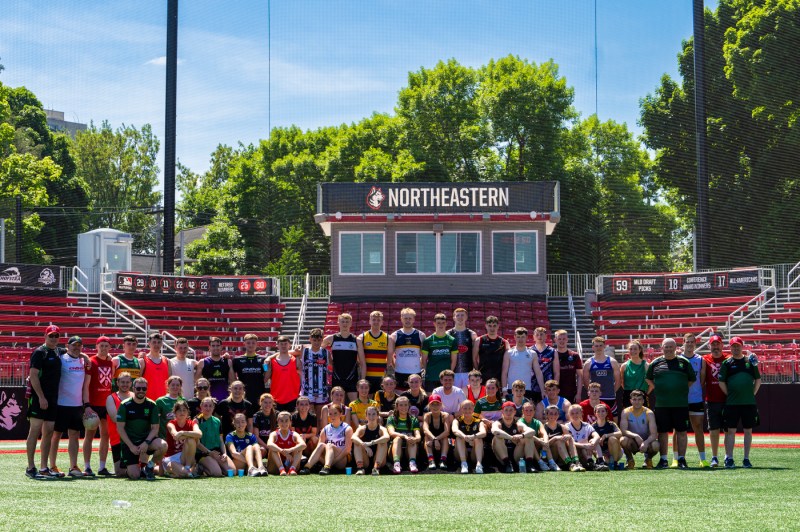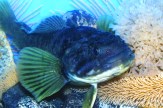Northeastern welcomes Gaelic football team from Queen’s University Belfast to Boston campus
The men’s and women’s teams of Ireland’s top sport are being hosted by Northeastern as part of a 10-day goodwill trip to New York and Boston.
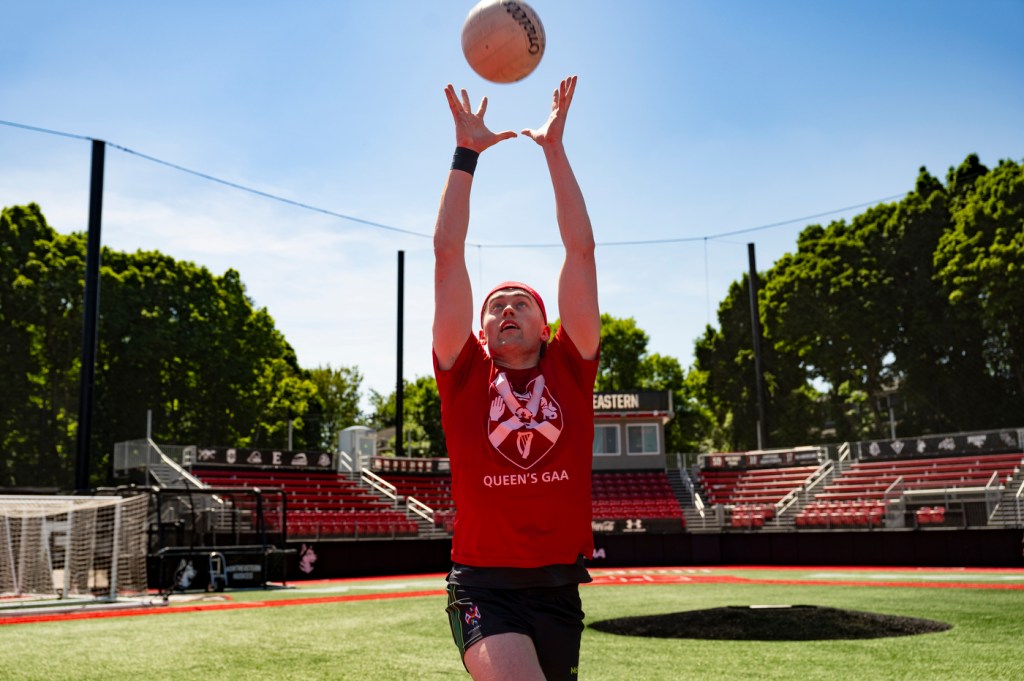
The two teams from Ireland were training with smaller versions of a soccer ball Thursday morning at Parsons Field. They were catching the ball, dribbling it with their hands and performing tricks atypical of the normal practices at Northeastern’s soccer facility.
They were the Gaelic football men’s and women’s teams from Queen’s University Belfast (QUB). Northeastern is hosting the teams as part of their 10-day tour of New York and Boston.The two squads will play exhibition matches Saturday at the Irish Cultural Centre in Canton, Massachusetts, featuring the QUB women at 1 p.m. and the men at 3 p.m. They’ll be opposed by select teams representing the USGAA, which promotes Gaelic sports in the U.S.
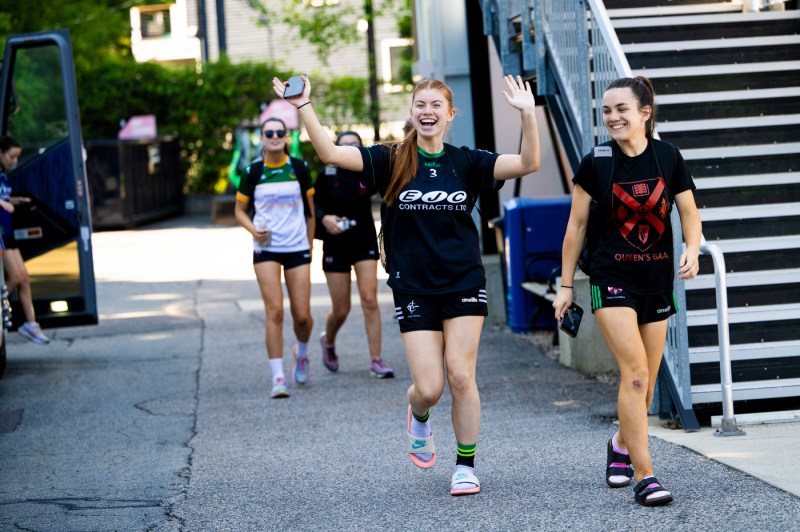
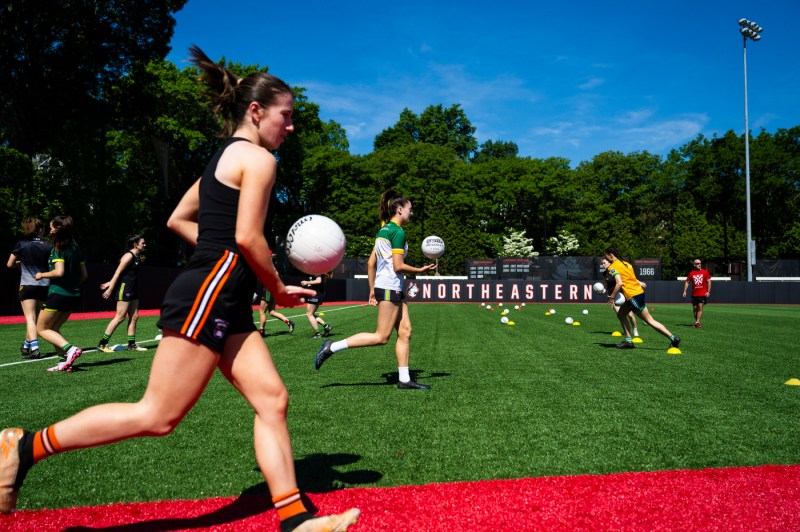
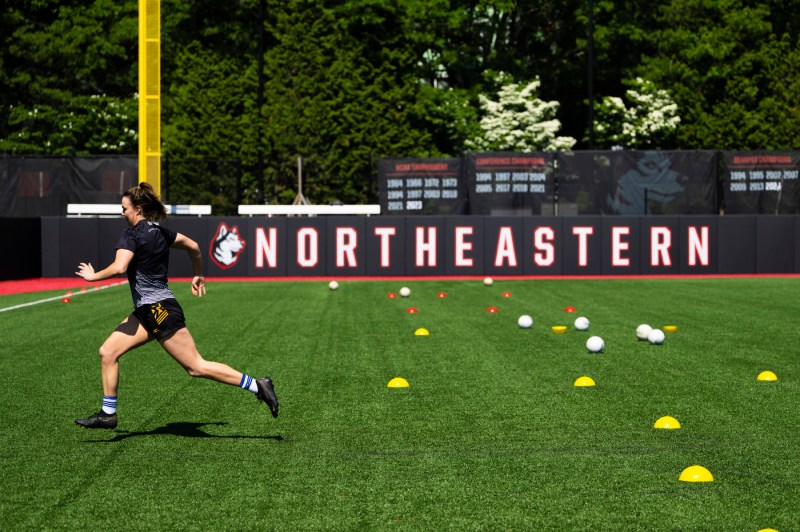
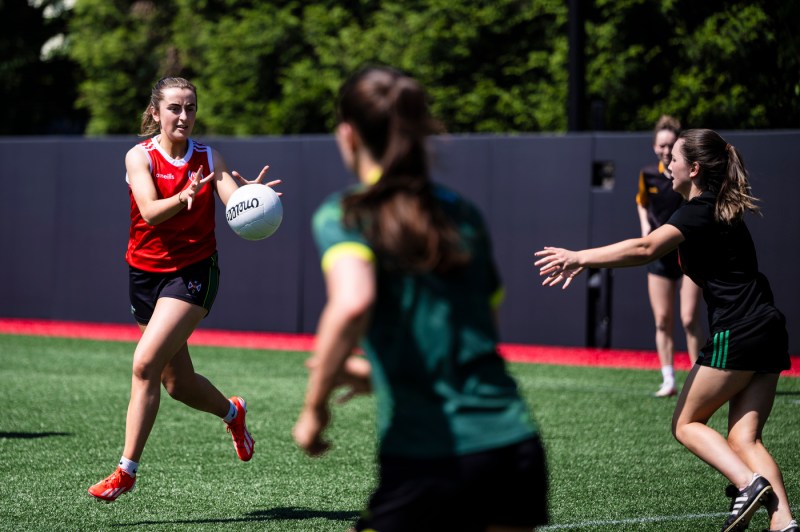
“I’m especially delighted to welcome you here because of the partnership that we’re building between Northeastern and Queens,” David Madigan, provost and senior vice president for academic affairs, told the 65-person QUB traveling party at an East Village reception Thursday.
The relationship includes student exchanges and research partnerships, said Madigan, who grew up in Athlone, a town in the rural Midlands of Ireland.
Ireland’s top sport is a blend of soccer and rugby (with a bit of basketball dribbled in). A player carrying the ball can’t run more than four steps without bouncing it on the ground or kicking it to themselves. The latter is known as soloing and the QUB players made it look easy as they flicked the ball onto their toe and back up into their hands like a yo-yo on a string.
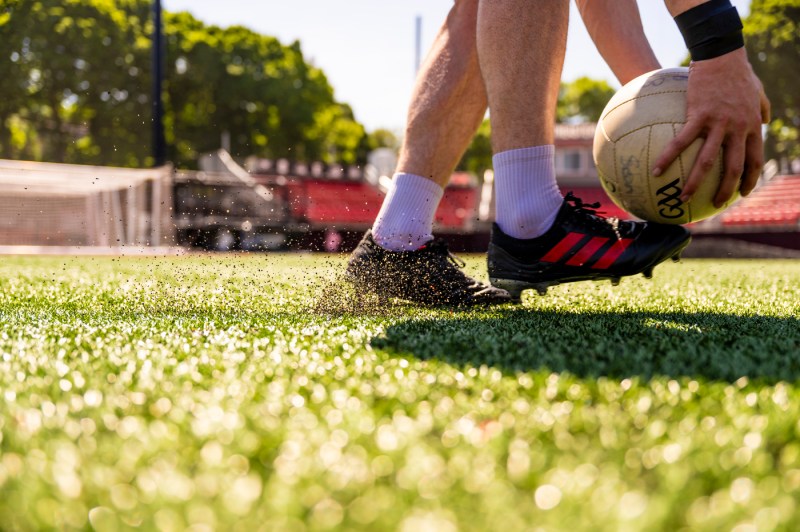
In one corner of Parsons Field, members of the women’s team ran short criss-crossing sprints while completing laterals to one another. “Drop the ball and it’s 10 press-ups!” a coach warned them.
The men were training on the other side of the complex. With a roar they celebrated goals (kicked into one of the available soccer nets at Parsons) that are worth three points in Gaelic football. Alternatively, a single point can be earned for kicking or punching the ball between the uprights above the goal.
Gaelic football is a hard, physical sport of 15 players per side (including a goalkeeper) who wear no padding.
“It’s not for the faint-hearted,” said QUB men’s coach Conor Deegan, a legendary Gaelic Athletic Association All-Star who earned two All-Ireland championships in the 1990s before capacity crowds at Dublin’s Croke Park. “The athletes that play the game know that it’s tough and they know they have to show a bit of grit and determination to stick out. But that’s built from a young age.”
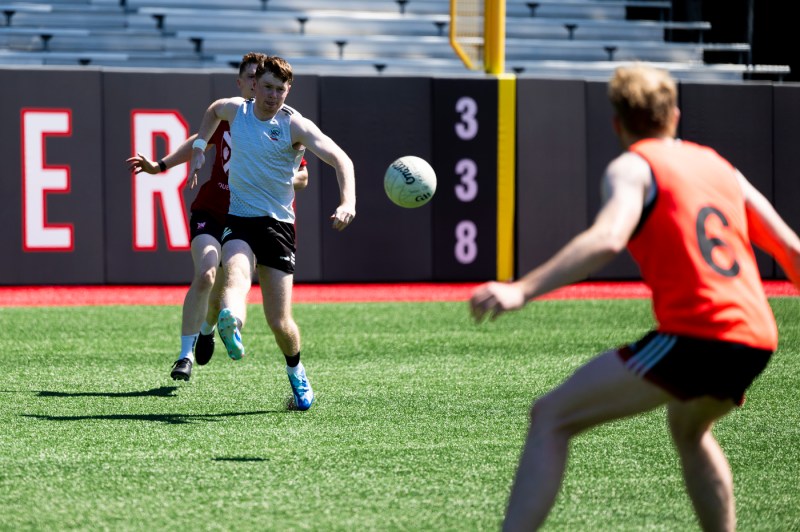
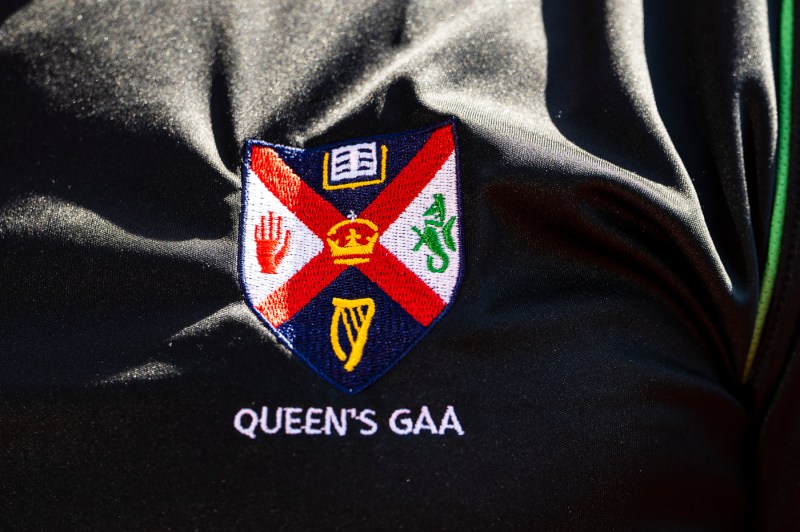
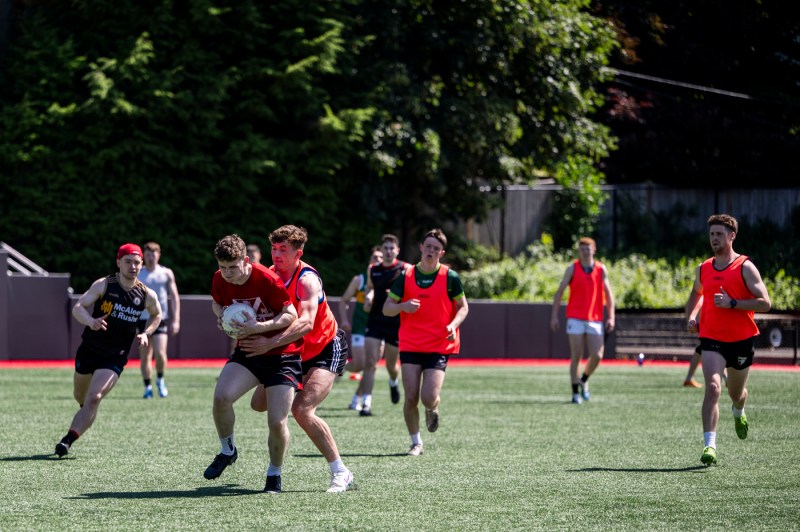
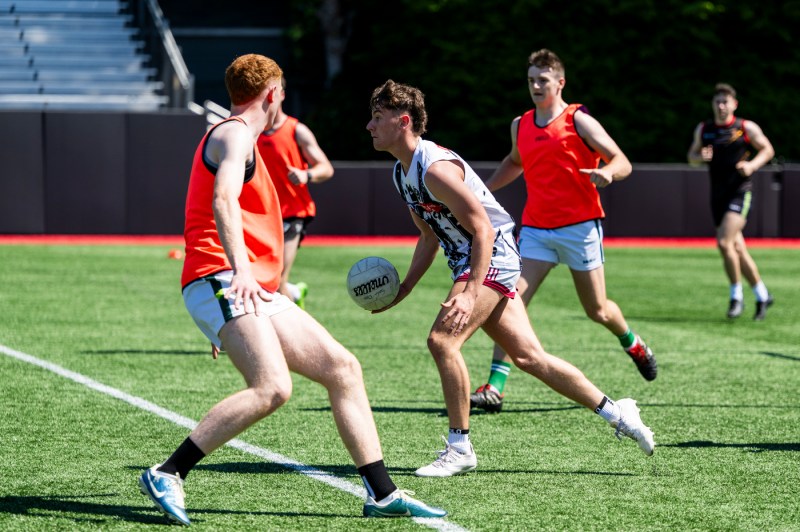
Matthew Murnaghan, the graduating fifth-year captain of the QUB men’s team, grew up playing Gaelic football. He’ll soon begin a professional career in mechanical engineering while continuing to play at the next level.
“It’s a massive part of our culture,” Murnaghan said. “It’s an amateur sport, the athletes don’t get paid, so you’re really only doing it for the love of the sport and for that community bond that you have with all the people who live near you.”
The QUB men are celebrating their 100th year of Gaelic football. The women’s team has been competing for 30 years.
“I’ve been playing more or less since I could walk,” said Brid McNally, a second-year psychology student who is captain of the QUB women’s team. “You can’t help but love it. And you love these days as well when you get these opportunities to travel.
“Building the friendships and the connections, it’s so good for both our sporting careers and our education as well.”
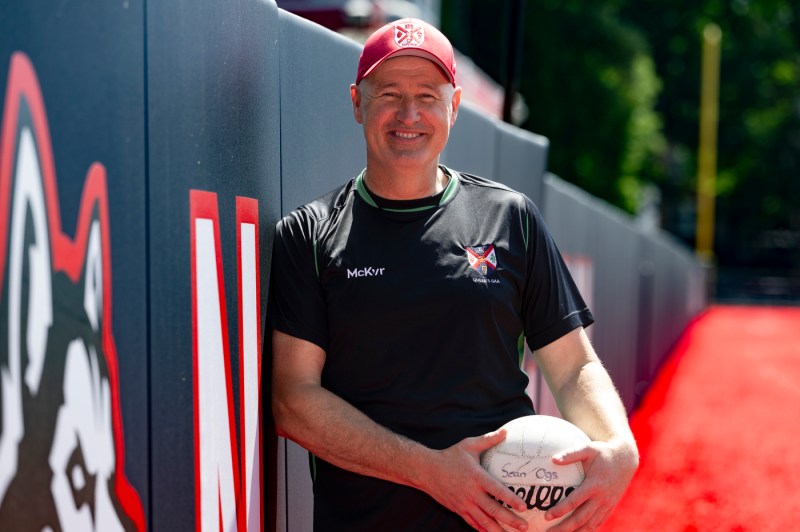
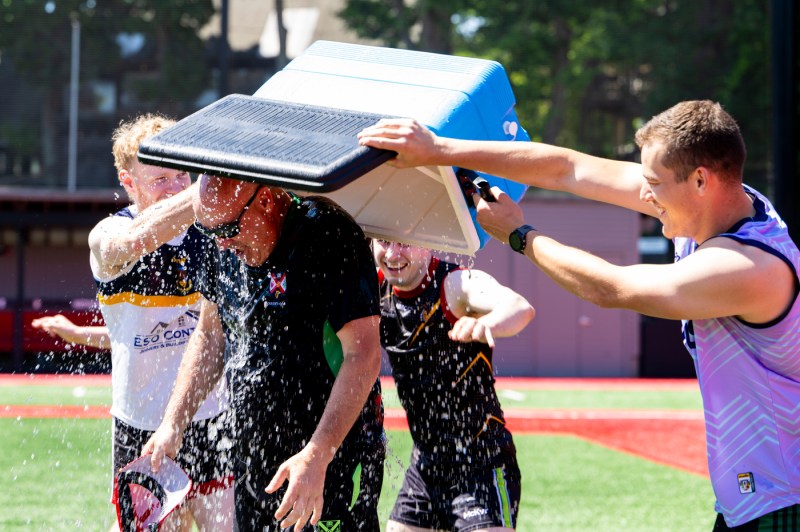
In addition to offering experiences for the 50 student-athletes, the goodwill trip is creating fundraising opportunities for QUB. Murnaghan referred to the facilities at Parsons Field as “exceptional.”
“The facilities and the professionalism that you guys have over here is a massive eye-opener for us,” Murnaghan said. “All of our facilities are built from fundraising, really. I’m hoping that a lot of us will be able to take some of the things that we see and learn here and apply it to our own game when we get back home.”
The QUB teams each played a game in New York before arriving in Boston by train.
“We’re excited to reinforce the partnership we have with Northeastern and we’re looking to build on that partnership,” said Karl Oakes, head of sport at QUB.
They’re also hoping to help grow their sport in the U.S.
“A lot of the players come here in the summer and play for clubs in New York and Boston,” Oakes said. “So we have a few players that won’t be traveling home with us. They’re going to stay for a couple of months, playing and working out here. There’s definitely an appetite to play Gaelic games in the States.”
